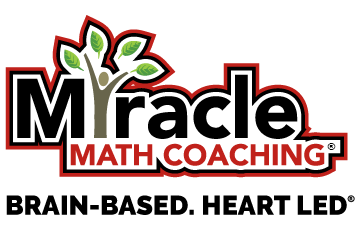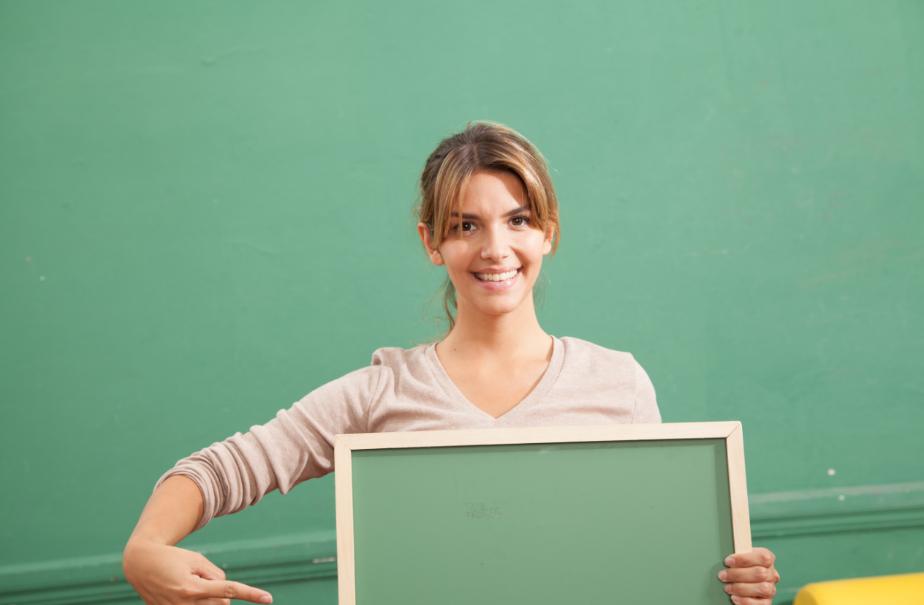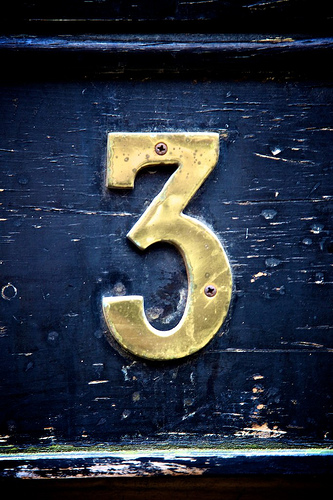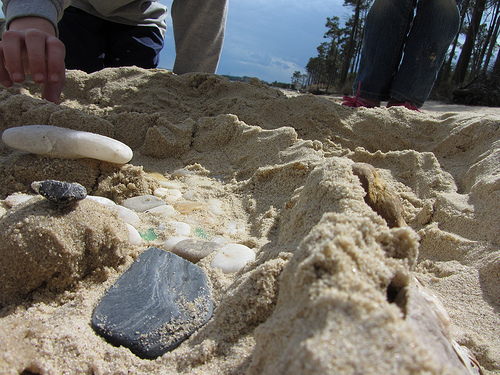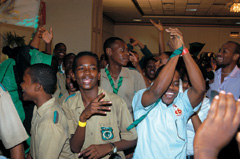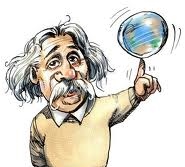Experience is Not the Only Way to Become a Good Teacher
By Deanna Hurn, Founder and Executive Director of Miracle Math Coaching

As a teacher just starting out, you might think that lack of experience is your biggest stumbling block. Years spent in front of a classroom is one of the top qualities of a good teacher, right? Not necessarily. Surprisingly, experience doesn’t always give you the best answers to questions like: “How do I not bore my class?” “What do I do if my lesson plans don’t work?” and “How do I control students who misbehave?”
It’s not time in the classroom that makes you a better teacher. It’s time in the mirror.
I know it sounds hokey, but often looking inside yourself leads you to the right solution. Being able to self reflect is one of the most important qualities of a good teacher. I learned that lesson while trying to do something completely unrelated to the field of education: I wanted to lose weight.
Actually, I wanted to become healthier.
My journey to good health has a lot in common with my journey to becoming a better teacher. I was passionate about both, but my experience didn’t help me. When it came to getting healthier, I was a disaster. Even after vowing to stick to my plan, I fell back on old habits: I binge ate. I blew off exercise. No surprise that I gained back whatever weight I’d managed to lose.
As for my journey to becoming a better teacher, I didn’t have experience to fall back on at all. I loved Math. And I was excited to find out about Brain-Based Learning, a neurologically based way to teach using how a student’s brain works. But being excited about a subject doesn’t translate into being good at teaching it. I eventually found that looking within myself was the key to living a healthier lifestyle and to embodying the best qualities of a good teacher.
As a new teacher, when you’re faced with a problem and don’t have the experience to figure out a solution, it’s time to reflect. Here are four ways to take your teaching game to the next level with self reflection:
1) Drop the perfectionist mindset. Even before you begin reflecting, accept that you’ll never be a perfect teacher. If you go into any endeavor trying to be perfect, you’re going to fail. Forget about engaging your students every second of every day or turning around every student who misbehaves. Just do your best and grow from your experiences. Think progress, not perfection.
2) Turn your reflections into something you can read or view. How you reflect is almost as important as the reflecting itself. At its most basic, reflection is a dialogue with yourself. In general, do you feel most comfortable communicating by writing or by speaking? Are you also an artist?
Capture your reflections by keeping a journal or diary, drawing in a sketchbook or making an audio or video recording. You’re better able to analyze problems by getting them out of your head and onto something tangible. And even on the blessed days that you are problem-free, expressing thoughts and ideas about your life is a great warm-up for when you are challenged.
3) Begin reflecting by asking yourself questions. If you’re wrestling with a particular problem, first reflect on whether the situation was caused by a self-fulfilling prophecy.
As you know, a self-fulling prophecy is a preconceived belief that helps make the belief actually come true. For example, when I reflect on why I’m not getting the results I want in a student, I take the time to re-evaluate both my expectations and his or her ability to meet them.
Believing, even subconsciously, that willful and disruptive students are bad kids makes me treat them as bad. But what if my expectations are more intentional, what if I change my expectation based on these children needing more stimulation and engagement in class or a listening ear after class? What if my behavior and words reflect that?
Sure, it might not work. But our usual response of expressing anger and exasperation rarely works.
I reflect on the effectiveness of my lesson plans each day. I don’t get very far believing that they just aren’t working. Instead, I reflect on what more creative modalities can I use to get us from where we are to where we want to be. By sitting and reflecting, I’m more open to devising other methods that I might not have otherwise considered.
Here are a series of questions you can ask yourself when you hit a roadblock.
- What happened?
- What would I have liked to have happened and why?
- What steps will I take going forward to ensure that what I want to happen actually happens?
- How will I feel when I successfully overcome this challenge?
4) Connect with others who can help you reflect. Find a community of educators who are like-minded and rely on them to keep you motivated. You can reach out to other teachers and educators in your school. You can find kindred spirits in online communities such as edWeb.net or with local chapters of associations, such as the National PTA or the National Teachers’ Association.
My community consists of a fitness coach, business advisors (including a group of Chief Executive of Officers) and my team at MMC. In addition to self-reflection, one of the qualities of a good teacher is the ability to reach out for help. An established support system means you’ll always have people to turn to when times are tough.
It’s tempting to think that experience trumps reflection as a quality of a good teacher. But that wasn’t true for me. I tackled the challenge of living a healthier life with tons of past experience. Though I hadn’t been successful, I’d learned some important lessons. Looking back on a series of failures – and it seems like there were dozens of them – I knew what not to do. I used my experiences of dieting and exercising over many years to guide me toward not repeating old mistakes.
The formal, psychological take on this: When I reflect, I’m bringing what I believe subconsciously to my conscious mind, where I can confront and modify my behaviors for future success. How cool!
It worked for me. Today, I’m 70 pounds lighter, I wear clothes that I love without worrying about the size, I run, I dance and I play with my three daughters without getting winded. I ran for Team in Training for two years, completed two Nike Women’s half marathons, and raised more than $6,000. I am energized and consistent with my healthy-living program (well, most days, anyway 🙂
Self-reflection makes me a better teacher. When lesson plans go astray, when I teach in a way that students just don’t get, when a classroom has fallen into chaos, I know it’s time to go within. My solution is to reflect upon what is really going on that’s getting in the way of my success. And as a teacher, I can call on the wisdom of other educators to help me, just as I received guidance from my fitness coach.
I believe that teachers are conduits. We connect and create enlightening moments where students’ brains absorb ideas, concepts, information and knowledge that are needed for an educated, productive society.
The stakes are high, so don’t let a lack of experience hurt your confidence. Though you might not have years in classroom, you do have what you need to succeed. It’s all in the mirror.
 About the Author:Deanna Hurn is an educator, entrepreneur and executive director of Miracle Math Coaching in Fairfield, Calif. She’s on a mission to spread the word about Brain-Based Learning a revolutionary way of using neuroscience to teach Math.
About the Author:Deanna Hurn is an educator, entrepreneur and executive director of Miracle Math Coaching in Fairfield, Calif. She’s on a mission to spread the word about Brain-Based Learning a revolutionary way of using neuroscience to teach Math.
If you want to become a better teacher or education leader, and you’re ready for that passion to take your career to the the next level, Deanna would love for you to join the Miracle Math Coaching team. Miracle Math offers part-time academic coaches a premiere training and development program.
We will teach you how students’ unique brains processes information and how their individual connection to the world is the key to their academic success. Our goal is to develop Brain-Based Learning warriors equipped with the tools to change the educational system.
